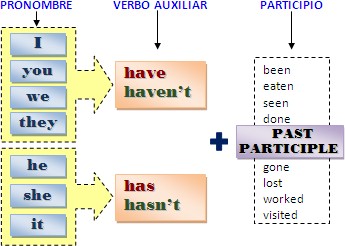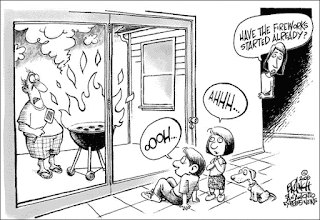Past simple
Past Continuous
Present perfect
Past simple
In the affirmative we only use word. (simple, remember?)
We have to see if the verb is regular or irregular:
But in the negative and the interrogative, we use DID
USE of the PAST SIMPLE
We use the past simple for short actions (with a long action in past continuous)
We also use the past simple to give details about something we did in the past (giving details to a questions with Have you ever.....)
Past continuous
It always has two words: (was/ were and ING)
In the negative and the interrogative we don't write DID.
Use of the Past Continuous
To describe a long action.
Do you remember this image?
We have a short action (in past simple)
"When the accident happened ....
And some long actions (in past continuous)
.... we were having a party".
Present perfect
It has two words:
have /has (here they mean "Haber") and a past participle
To write the past participle we have to pay attention to regular and irregular verbs:
Use of the present perfect
- To say we have the experience of doing something
- To ask about details we use the past simple
Important words used with the Present perfect
Yet always goes at the end of a sentence.
In the negative: it means "todavía"
In the interrogative: it means "YA"
Already goes before the past particicle
I have already played
Already means "YA"
We are going to use it in the affirmative
(but it is sometimes used in the interrogative to show surprise)














